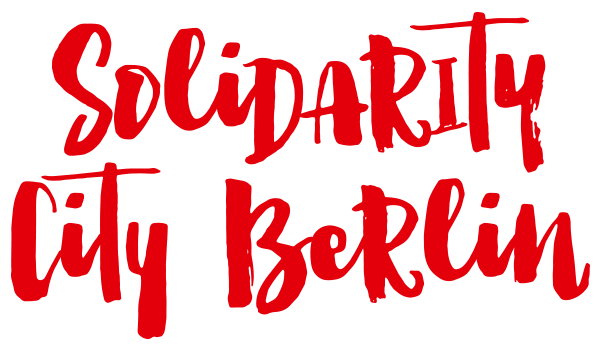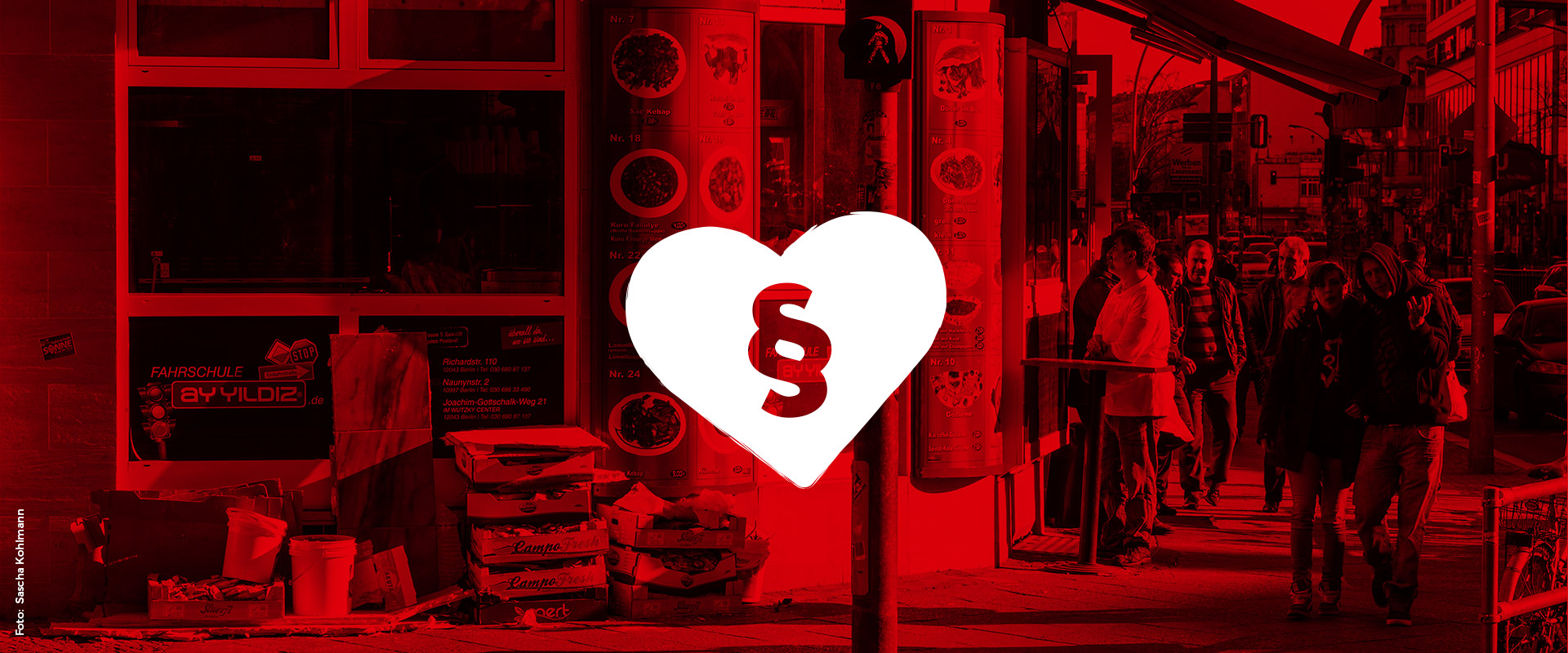The COVID 19 pandemic and how the current crisis affects undocumented people
Call for legalisation and solidarity
«We are all going through a very difficult economic moment, because we depend on our daily work to pay for our room and to support ourselves, and in my case also to feed my daughter. I can only find one or two jobs per week. So we are very worried because we don’t have papers. We are illegalized people. We have no other way to make money. It’s frustrating for us. We don’t know how long the virus will last. We are worried because we are all taking risks».
(Testimony from an affected person)
More testimonies follow: http://www.respectberlin.org/wordpress/
Many people live illegally in Germany. The reasons are manifold: Many of them were refused political asylum. For fear of repression in their countries, they decided to go underground. Others came as tourists and decided to stay here to work and support their families in their countries of origin.
The cause of this situation is the inequality between the Global South and North. Just as many Europeans have emigrated to Latin America in times of crisis, people today are emigrating in search of a better life or flee from oppression.
For more than 20 years, the Respect initiative has been working to draw attention to the situation of undocumented women in Berlin, showing solidarity with them and providing them with concrete support.
Health care for undocumented migrants – the struggle continues …
Within the “Solidarity City” network Berlin (http://solidarity-city-berlin.org/), we have engaged in a campaign in recent years to demand anonymous health insurance (“anonymer Krankenschein”) and thus access to health care for undocumented migrants.
The Berlin Senate has now set up an information center («Clearingstelle») to enable people without health insurance to access health care. Unfortunately, we have found that this access has so far been very bureaucratic and inadequate. Even today, during the time of COVID-19, the Clearingstelle has not been particularly committed to undocumented migrants and, for example, has not informed them of their legal situation under the Infection Protection Act. However, on 17 April, the Senate reacted to the protests and announced a regulation that now allows people without health insurance to visit all general practitioners in Berlin and seek treatment. To do so, they must first apply for a cost absorption certificate from the Clearingstelle. This is a step forward that must be maintained after the pandemic. However, it remains to be seen how well this will work in practice. Apart from this new policy, the situation is unchanged. Those who are seriously ill and need treatment by specialists or who have to go to hospital are faced with a very cumbersome bureaucracy.
There is also a lack of accessible information in all the necessary languages. And there is no information on what to do when people in an irregular situation have symptoms of COVID-19. There is also a lack of information on where they can be tested and whether they should be afraid that their data will be passed on to immigration authorities if they are carriers of the virus.
Undocumented migrant care workers are on the brink of the abyss
People without papers mainly work in the service sector. Migrant women take on domestic, care and nursing tasks that many people with better economic living conditions no longer do themselves, to have time for paid employment. Illegalized persons take care of children, pick them up from school, put them to bed when their parents go to the cinema or to a party, clean houses, iron, cook in restaurants, clean in hotels, work in construction, etc.
Now that the priority is isolation, the employing families stay at home. Schools and cinemas are closed and the workers without papers are no longer needed. Employers have generally told them that they no longer need their help. All the undocumented working women we know have been laid off without any offer of support.
In addition, undocumented people do not dare to go out on the streets for fear of being controlled, especially because of the massive and frightening presence of the police on the streets. Many undocumented people are completely isolated in permanent insecurity, some suffer from depression. Currently, they cannot look for other jobs and have to live with daily worries. In addition, many of them are concerned about their families in their home countries. For undocumented workers, there is no government support because they do not officially exist for the German state.
Visibility and solidarity
This crisis has revealed and exacerbated existing social inequalities. It must therefore be clear that this crisis affects us all, but not in the same way. Once again, the situation of illegalized people remains invisible. The illegalized women we are in contact with have asked us to make this call on all organizations, initiatives and individuals. We ask you to participate in a day of action to demand the legalization of undocumented people.
We believe that at a time when a lot of responsibility and solidarity are expected of all of us, it is extremely important to demand that illegalized people are not left behind. The idea of a society based on solidarity must also apply to them! The current crisis shows all the more clearly that no one should be excluded from fundamental social rights!
- We demand the legalisation of all people living in Germany.
- We demand unlimited and equal access to health care for all people living in Germany.
We invite all anti-racist initiatives/groups and persons to participate in the day of action.
It will take place on Saturday, 25 April, throughout the day.
How?
- With the hashtag #LegalizationNow, post selfies with banners, or videos, explaining why the campaign is important,
- Use the flyer as a profile picture in social media
- You can support our demands by supporting our call with your name or your organisation’s name.
The government is unlikely to meet our demands at this time. That is why we are hereby launching a fundraising campaign to support illegal workers.
Make a donation to:
Respect Initiative Berlin
Intended Use: Solivirus
DE34 8306 5408 0004 9035 60
BIC GENO DEF1 SLR
Deutsche Skatbank
Please note: Unfortunately, we cannot issue donation receipts!
Supporters:

